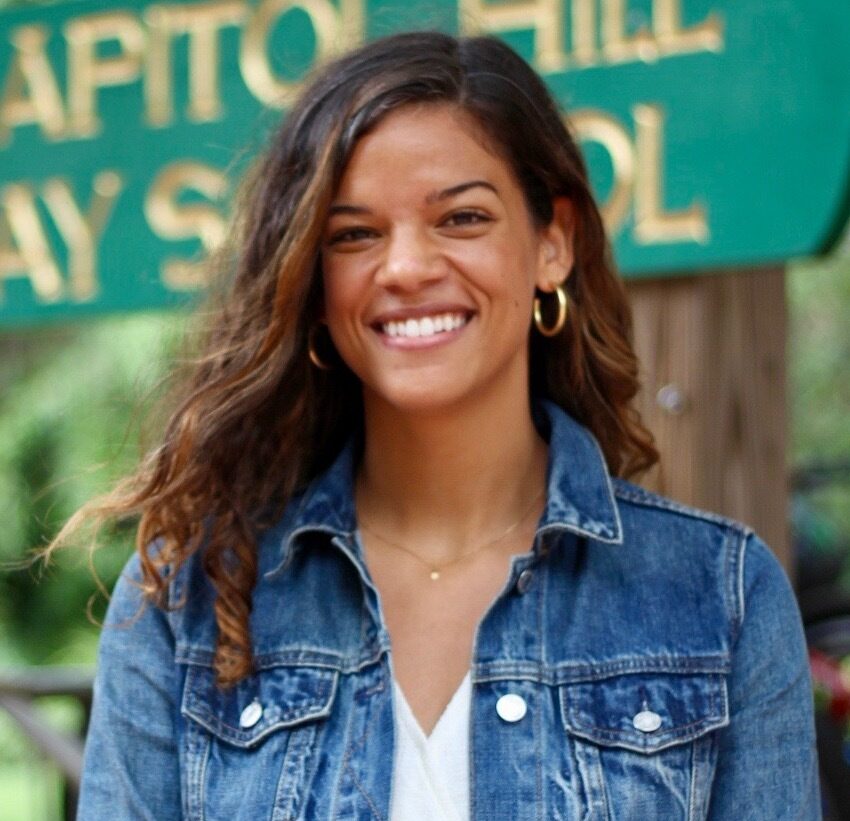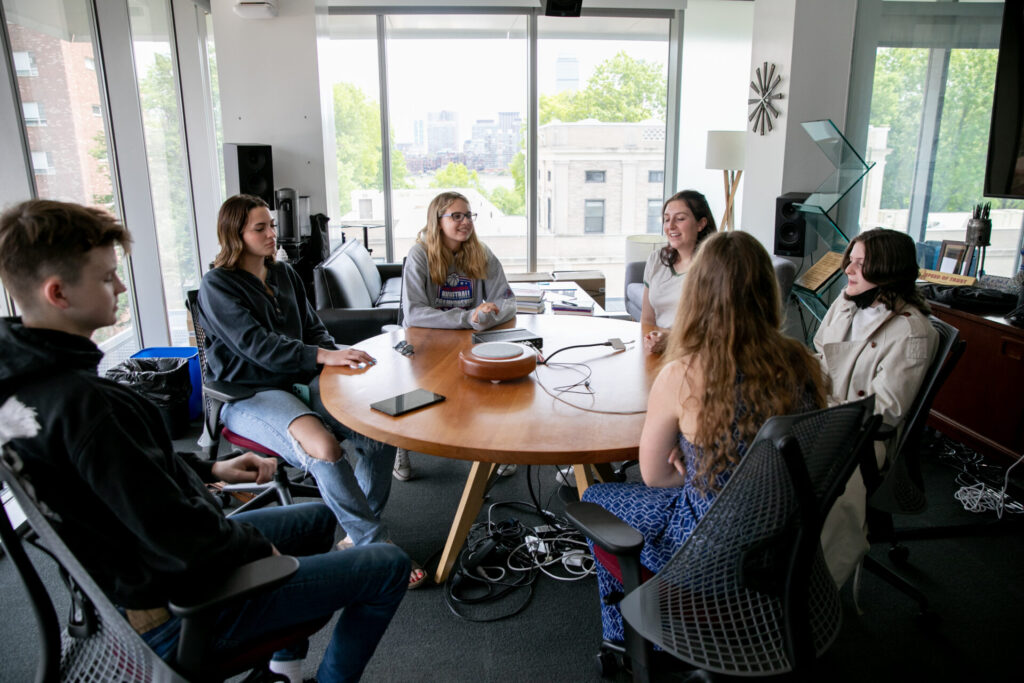

By Hana Carey, Manager of Youth Programs & Partnerships, Cortico
During this year’s Civic Learning Week, I’ve been reflecting on my time as a middle and high school social studies teacher. In particular, I’ve been thinking about the many moments in which I watched students thrive when given the space to explore issues that were important to them and advocate for themselves and their communities. When students are given opportunities to engage in meaningful conversations with each other, the classroom becomes the perfect place to exercise the civic skills of both speaking up and listening to others.
When we think about a classroom as a community, we realize just how civically engaged young people are in the school environment – students navigate differing opinions during discussions, share responsibilities through group projects, and much more. They are often in positions to think not just about themselves and their own success, but the impact of their work on the larger classroom community. This process of negotiating a network of diverse, intersecting communities not only encourages students’ curiosity, but it builds their confidence, fosters a sense of agency and identity, and forges stronger connections with their classmates.
Even though I’m no longer in the classroom, I see this play out at Cortico, where we support an innovative approach to meaningful community engagement through small-group recorded conversation projects.

My role at Cortico is to build strategy for our work with youth, imagining what a youth-led approach looks like in practice, at scale. Through our project-based approach, young people have the space to continue to practice speaking up and connecting with their communities. For example, youth leaders have used our Fora platform to take on chronic absenteeism in Newark, New Jersey and to become leaders within their school communities in Maine.
In both projects, young people identified issues with direct impact on them and used real youth voices as the foundation for addressing these issues. They practiced community engagement by organizing recorded, small-group conversations with peers and classmates to gather stories rooted in personal experiences. After listening to the recordings, they used Fora’s tools to analyze the conversations and unearth valuable insights. The insights gathered were used to advocate for positive change, empowering young people to speak up and understand that their voices matter. This process mirrors civic engagement, and starts to build a foundation on which to develop civics skills that can be applied in any new communities youth may enter.
Youth-led conversation projects rooted in meaningful human listening provide a way for young people to strengthen both their civic muscles and their community connections. According to Justice Sonia Sotomayor, “civic education is the key to inspiring kids to want to stay involved in making a difference.” Conversation projects provide a tangible way to practice making a difference – energizing them to not only stay involved, but to advocate both for themselves and others. In this sense, deep listening is a civic skill, and one that can easily be integrated into the classroom and broader communities.
